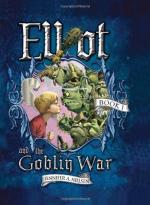“Oh, God!” he groaned again, almost falling over a bush of broom; and sitting down, he buried his face in his hands, and, forgetful of the wind and the rain, which now drove down in torrents, sat and brooded and thought, his mind seeking to understand the chaos of despair.
What was the meaning of life? What was beyond it after death? Would immortality, if such there were, be worth having? Men in countless, unthinkable millions, had lived, and loved, and lost, and passed on. Did immortality carry with it pain and suffering for them? If not, did it carry happiness and balm? To hell with religions and philosophies, he thought; they were all a parcel of fairy tales to drug men’s minds and keep them tame; and he glared impotently at the pitiless heavens, as if he would defy gods, and devils, and men. He would be free—free in mind, in thought, and unhampered by unrealities!
No. Men had the shaping of their own lives. Pride would be his ally. He would lock up this episode in his heart, and at the end of time for him, there would be an end of the pain and the regret, when he was laid among the myriad millions of men of all the countless ages since man had being.
This was immortality; to be forever robed in the dreamless draperies of eternal oblivion, rather than have eternal life, with all its torments—mingling with the legions of the past, and with mother earth—the dust of success and happiness indistinguishable from the dust of failure and despair. Time alone would be his relief—the great physician that healed all wounds.
The wind blew stronger and the rain fell heavier, the one chasing, the other in raging gusts, and both tearing round and lashing the form of the man who sat motionless and unaware of all this fury. The wind god tried to shake him up by rushing and roaring at him; but still there was no response. Then, gathering re-inforcements, he came on in a mad charge, driving a cloud of rain in front of him as a sort of spear-head to break the defense of fearlessness and unconcern of this unhappy mortal. Yet the figure moved not.
Baffled and still more angry, the wind god retired behind the hills again to rest; then, driving a larger rain-cloud before him, with a roar and a crash he tore down the slope, raging and tearing in a wild tumult of anger, straight against the lonely figure which sat there never moving, his head sunk upon his breast.
Beaten and sullen, the god again retired to re-collect his strength. He moaned and growled as he retired, frightening the moor-birds and the hares, which lay closer to earth, their little hearts quivering with fear. Young birds were tucked safely under the parent wing, as terror strode across the moor, striking dread into every fluttering little heart and shivering body. Low growled the wind, as he ran around his broken forces, gathering again new forces in greater and greater multitudes.
Just then, with an oath, the figure rose and faced the storm, striding again up the slope, as if determined to carry the war into the camp of the enemy.




